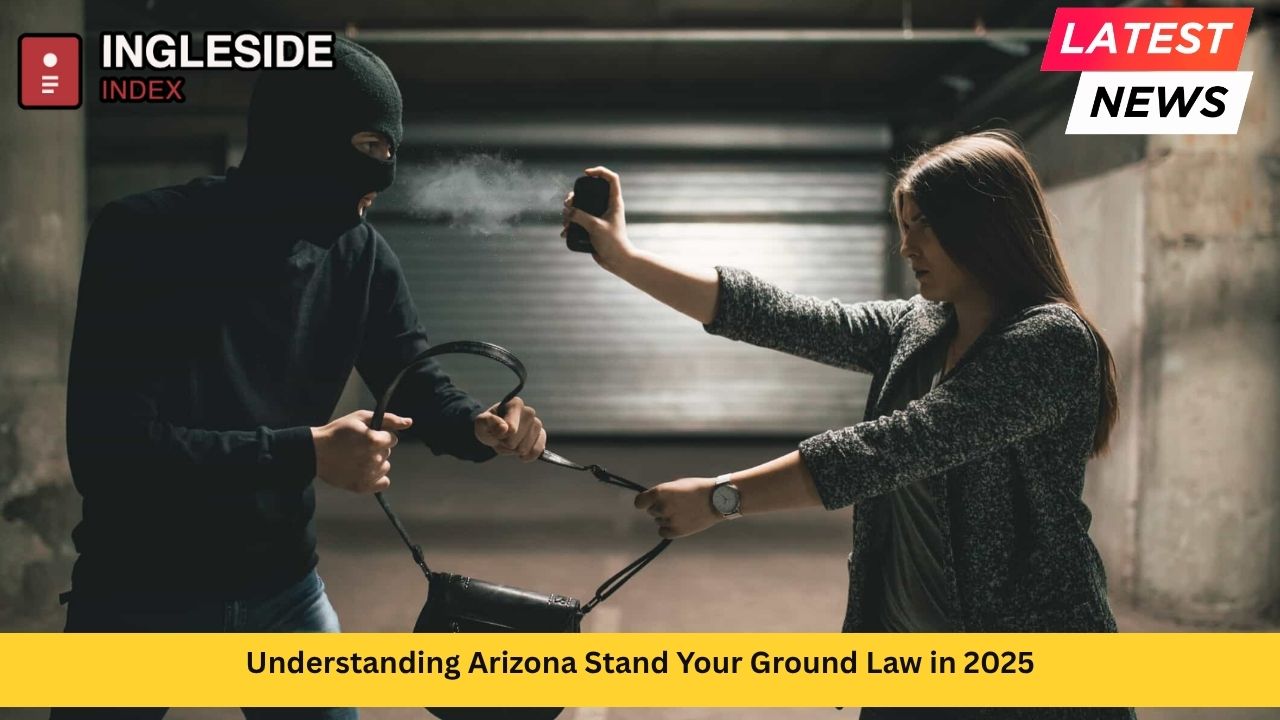Arizona’s Stand Your Ground law shapes self-defense rights for millions across cities like Phoenix, Tucson, Mesa, and Glendale. With the ongoing national debate on gun rights, personal protection, and public safety, understanding this law is more important than ever in 2025. This article breaks down how the statute operates statewide, its connection to Arizona’s crime rates, real-world implications, and what residents living in both the busiest cities and quietest suburbs need to know.
The Foundation of Stand Your Ground Laws
The concept behind Stand Your Ground laws is simple: you have no duty to retreat before using force, including deadly force, to protect yourself if you are in a place you are legally allowed to be. Traditionally, American law imposed a “duty to retreat”—if you could escape without harm, you had to do so. The adoption of Stand Your Ground reverses that expectation, empowering individuals to defend themselves, even in public spaces.
How Arizona’s Law Works
Under Arizona Revised Statutes (ARS) §§ 13-404, 13-405, and 13-411, you can use reasonable force to defend yourself—or someone else—if you believe it’s necessary to prevent imminent, unlawful harm. Deadly force is permissible only when you reasonably believe it’s required to stop a serious threat, like death or serious physical injury. Importantly, there is no obligation to try to escape or de-escalate before acting.
Key principles of the Arizona Stand Your Ground Law:
-
No duty to retreat in any place you can legally be.
-
Force must be proportional to the threat—deadly force only for life-threatening situations.
-
The defender must not be engaged in illegal activity.
-
The threat must be immediate and real from the defender’s perspective.
Stand Your Ground in Arizona Cities
Arizona’s population is spread across bustling metropolitan centers and growing suburbs. Stand Your Ground law applies equally whether you’re in the heart of Phoenix or the peaceful neighborhoods of Gilbert and Queen Creek. According to the latest 2025 data, Phoenix—the state’s largest city—remains a focal point for self-defense scenarios, with its populous urban environment and notable crime statistics.
Noteworthy Arizona cities and their crime landscapes:
-
Phoenix: As the fifth-largest city in the U.S., Phoenix deals with the complexities of urban crime, including property crime and assaults.
-
Tucson: While property crime is a concern, recent police initiatives led to a notable drop in violent offenses.
-
Mesa and Glendale: Both see moderate crime streams; residents value clear rules governing self-defense.
-
Tolleson: Stands out for having the highest per-capita crime rate in Arizona, nearly 470 percent above national averages. Here, residents face increased odds of becoming crime victims.
-
Oro Valley and Gilbert: Ranked among the safest cities in the state, reporting significantly lower violent and property crime rates.
Crime Statistics and Trends in 2025
The Stand Your Ground law has not gone unnoticed in Arizona’s crime trends. In recent years, larger cities like Phoenix and Tucson have seen double-digit decreases in homicide rates, partly attributed to technological policing innovations. Statewide, violent crime has dipped slightly (about 3 percent), but property crimes like auto theft have risen notably, especially in places like Phoenix and Winslow.
Key 2025 crime facts:
-
Tolleson posts an overall crime rate of over 13,000 incidents per 100,000 residents, making it the most dangerous city in Arizona currently.
-
Tucson reports a violent crime rate of nearly 6 per 1,000 and a property crime rate of almost 30 per 1,000.
-
Gilbert, Queen Creek, Oro Valley, and Sahuarita are among the safest, with violent crime rates as low as 1 per 1,000 residents.
Legal Use of Force: When Is It Justified?
Justification hinges on reasonableness—a recurring term in Arizona law. If a reasonable person in your situation would believe force is necessary and you’re acting to prevent an immediate unlawful threat, self-defense is likely justified.
Situations where force may be legally applied include:
-
Self-defense against physical attack.
-
Defense of others facing unlawful aggression.
-
Protecting your residence (sometimes referred to as the “Castle Doctrine”).
-
In certain circumstances, defending your property from theft or criminal damage.
For deadly force, the threshold is higher: you must believe it is the only way to prevent death or serious injury to yourself or others.
Practical Scenarios in Arizona Life
Let’s consider some examples relevant to Arizona residents:
Public confrontations: If you’re legally present on a street in Tempe and threatened with a deadly weapon, you can defend yourself without needing to retreat—provided your perception of the threat is reasonable.
Vehicle incidents: If a carjacking occurs in central Tucson, you’re entitled to use necessary force to protect yourself or others inside the vehicle.
Home invasions: The law offers especially strong protection in the home. In neighborhoods such as Scottsdale or Chandler, a resident need not flee during a break-in. Instead, the law assumes a higher justification for using force.
Defending property: Enforcement differs here; only reasonable physical (not deadly) force is typically justified in preventing theft or property damage.
Controversies and Societal Impact
As in other states, Stand Your Ground remains controversial in Arizona. Supporters argue that it empowers law-abiding citizens, improving safety and deterring crime. Detractors point to studies suggesting increases in homicide rates where such laws exist, and argue that the rule can be misapplied, escalating violence unnecessarily.
Considerations in this debate:
-
Some research links Stand Your Ground with increased homicide rates, though impacts on robbery or burglary are less clear.
-
Critics warn of “gray area incidents” where it’s difficult to determine if deadly force was genuinely necessary, leading to complex legal proceedings, particularly in high-crime cities.
-
Law enforcement agencies in many cities, including Phoenix and Tucson, have updated training and public information efforts to clarify correct application, aiming to reduce tragic misunderstandings.
How the Law Affects Prosecutions
When someone claims self-defense under the Stand Your Ground law, prosecutors must prove beyond a reasonable doubt that the use of force was not justified. This legal structure makes it harder to convict individuals who reasonably believed that their actions were necessary.
However, misuse of the law does happen:
-
Initiators of violence cannot claim protection—they must not have provoked the incident.
-
The law does not protect individuals engaged in criminal activity at the time of the event.
-
Using excessive force beyond what’s reasonably necessary removes legal protection.
What Arizona Residents Need to Know
Knowledge is the most powerful tool for anyone who may be confronted with a dangerous situation, whether in downtown Mesa or rural outskirts of Yuma. Here’s what every resident should keep in mind:
-
If threatened, you have the right to defend yourself without needing to flee, as long as you are not the aggressor and are lawfully present.
-
Deadly force remains a last resort. Try to gauge if the threat truly justifies such action.
-
Self-defense claims will be closely examined by law enforcement and courts for reasonableness.
-
If police arrive after a self-defense incident, remain calm, state that you feared for your safety, and request an attorney before further discussion.
-
Consider getting legal advice or training in use-of-force laws if you carry a firearm or have a family to protect.
The Law’s Future in Arizona
Arizona’s Stand Your Ground statute continues to spur debate in 2025 as new crime-fighting technologies emerge and urbanization reshapes the state. As Phoenix’s population grows and cities like Buckeye and Maricopa expand, discussions about community safety, crime prevention, and personal defense are woven into the state’s evolving identity.
The law’s supporters advocate for its retention or even extension—especially in response to violent trends in cities with higher crime rates. Opponents call for reform, tighter guidelines, or improved public education to reduce abuses and clarify when force is truly justified.
Final Thoughts
Grasping Arizona’s Stand Your Ground law is vital for everyone, from apartment dwellers in downtown Tucson to homeowners in Goodyear’s suburbs. The principle that you may defend yourself without retreating shapes the state’s criminal justice system—and affects thousands of lives yearly across its cities.
As 2025 progresses, Arizona’s unique blend of urban energy, small-town living, and frontier mentality will continue to influence how the Stand Your Ground law is applied, discussed, and perhaps reformed. By understanding both the law’s letter and its spirit, residents stay prepared to protect themselves, their families, and their communities while remaining within the bounds of state law.




